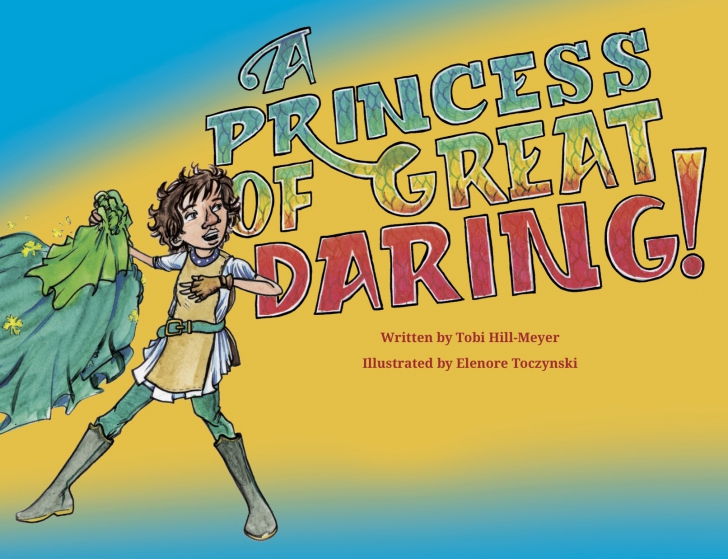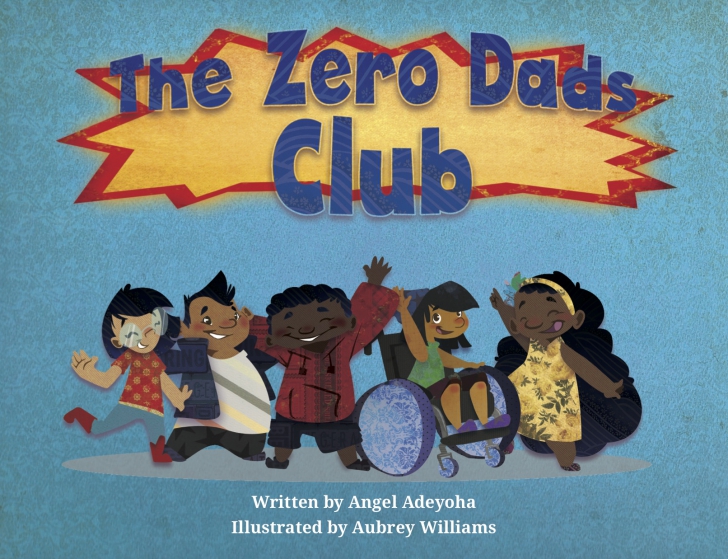
S. Bear Bergman (left) and j wallace skelton with their children, Stanley Bergman (front)
and Solomon Bergman (on shoulders). (Photo by Sara Elisabeth)
by Anisa Rawhani
One evening, while reading a bedtime story to his three-year-old son, S. Bear Bergman noticed an alarming pattern. It seemed like every LGBTQ-themed picture book he read was riddled with bullying, harassment, and violence. Most often, the plot would go a little something like this:
A child or parent comes out/is outed.
Their community treats them horribly.
Then, in the conclusion, there’s some sort of quick reconciliation.
Not exactly the type of book you can read to your kid and then just say, “Ok, sweet dreams.”
It’s true that LGBTQ kids and families can face serious harassment and violence, but Bergman said being constantly confronted with that narrative was exhausting and overwhelming.
“If every book a kid encounters has someone who is LGBTQ being treated like crap because of it, then are we not suggesting to children that that is the natural state of things?” he said.
“I started to think: what would it mean to normalize the idea of queer and trans people for children, so that when they grow up and encounter actual trans and queer people, their immediate reaction isn’t to be so alarmed and upset that they want to beat people to death with a piece of plumbing pipe?”
From that question, Bergman founded Flamingo Rampant, a micro-press that focuses on publishing diverse, positive and affirming books about LGBTQ kids and families.

It all started when an organizer of a conference for gender-independent kids asked Bergman to write a kids’ book. She’d tried to find something to read to trans kids and their siblings at the conference, but couldn’t find anything remotely positive.
“If every book a kid encounters has someone who is LGBTQ being treated like crap because of it, then are we not suggesting to children that that is the natural state of things?”
So Bergman, an author of grown-up books, took a crack at it, and the result was two fanciful children’s books featuring trans characters. Parents started asking Bergman where they could buy them, so he set out to have them published — only to be rejected by publishers at every turn.
“One editor said to me, ‘These are really cute, but we’re not going to publish them. But if you write any books about normal children, I’d love to see them,’” he said.
“Normal children, my ass.”
Fed up, Bergman and his husband, j wallace skelton — both of whom are trans — decided to publish the books themselves through Kickstarter in 2012. Backers pledged $18,555 and Backwards Day and The Adventures of Tulip, Birthday Wish Fairy, were brought to life.
“People loved them,” Bergman said. “I got fan mail in crayon … There’s nothing better than that.”
“I kind of thought that was going to be the end of it.”
It wasn’t. With eight books previously published, Flamingo Rampant launched six more on September 17 with a big launch at Toronto’s Glad Day Bookshop.
The six books follow a “celebration” theme and include a pow wow book about a 2-Spirit child; a Passover book, featuring two lesbian bubbies; an Eid book, featuring two gay dads; and “a Christmas book that will tug at all your heart strings about a little kid whose parent comes out at trans just before Christmas and all the lengths that kid is ready to go in order to make sure their parent has a fantastic Christmas,” Bear said in a Kickstarter video for the latest set.






Kids react to Flamingo Rampant books:
The books feature kids of varying abilities, backgrounds, and genders — but the stories aren’t about lecturing kids on the importance of diversity.
They’re about topics kids love, like pirates and space; fairies and superheroes; food and family. With stories like A Princess of Great Daring, Flamingo Rampant gives kids the adventure and excitement they crave, while simultaneously normalizing the experiences of LGBTQ children and their families.
And most importantly: it gives gender-independent kids the chance to finally see themselves within the pages of a book.
 Once Flamingo Rampant was launched, some rules were set for moving forward: at least half of the books published had to feature kids of colour, have girls and women as the primary problem solver, and have artists and writers of colour.
Once Flamingo Rampant was launched, some rules were set for moving forward: at least half of the books published had to feature kids of colour, have girls and women as the primary problem solver, and have artists and writers of colour.
That last rule is critical, because while there’s been a slight rise in diversity in kids’ books characters, that doesn’t mean that same diversity is reflected among book creators being published.
The Cooperative Children’s Book Center in the University of Wisconsin-Madison gathers statistics on multiculturalism in kids’ books every year. Of the 3,400 kids’ books they analyzed in 2016, only 286 were about Black characters and only 93 of those were by Black authors. That means that about 66% of books about Black characters weren’t written and/or illustrated by Black creators.

Flamingo Rampant has made an “intense, concerted effort to move beyond the model of variety,” Bergman told the Broken Pencil. “Not this sort of Dolls of the World, collect the set diversity, where everyone basically looks the same but you colour them a bunch of different shades, and say like, ‘Oh. We made diversity. Aren’t we great?’”
Instead, Bergman said they strive for the type of diversity where characters are fully realized, and families and communities are shown as they really are. That means not only showing diversity of gender and race, but all backgrounds, experience and ability. Because after all, not every child has a house with a backyard. Not every child has two parents. And not every child runs around on two legs.
Representing this diversity can be very meaningful for families. This past fall, Bergman got an email from a mother in the United States who had ordered six books. She’d been looking for queer-positive, trans-positive books to read to her four kids, especially for her child who is gender-independent. Bergman said her kids loved them — but what she hadn’t expected was the impact the books had on her sister’s children, one of whom uses a wheelchair.
Bergman recalled how her email had said, “I can’t tell you how meaningful it was for this older child to get — from the six books that came in mail … two [books that] featured main characters that used wheelchairs.”
 “And that wasn’t the point of the story,” Bergman said. “It was just like: here’s a kid we learn things about, who has positive things to contribute, who is fully present and realized as a character who uses wheels.”
“And that wasn’t the point of the story,” Bergman said. “It was just like: here’s a kid we learn things about, who has positive things to contribute, who is fully present and realized as a character who uses wheels.”
Flamingo Rampant’s books are by and large for LGBTQ kids so they can finally see themselves reflected in a meaningful and positive light — but they’re also for all of kids and families, normatively gendered or otherwise, so that we can be better allies and more thoughtful when it comes to gender expectations. Hopefully then, a better generation of children can be raised up, one that sees the beauty in diversity and champions inclusion and kindness.
Flamingo Rampant now has 14 books for sale.
